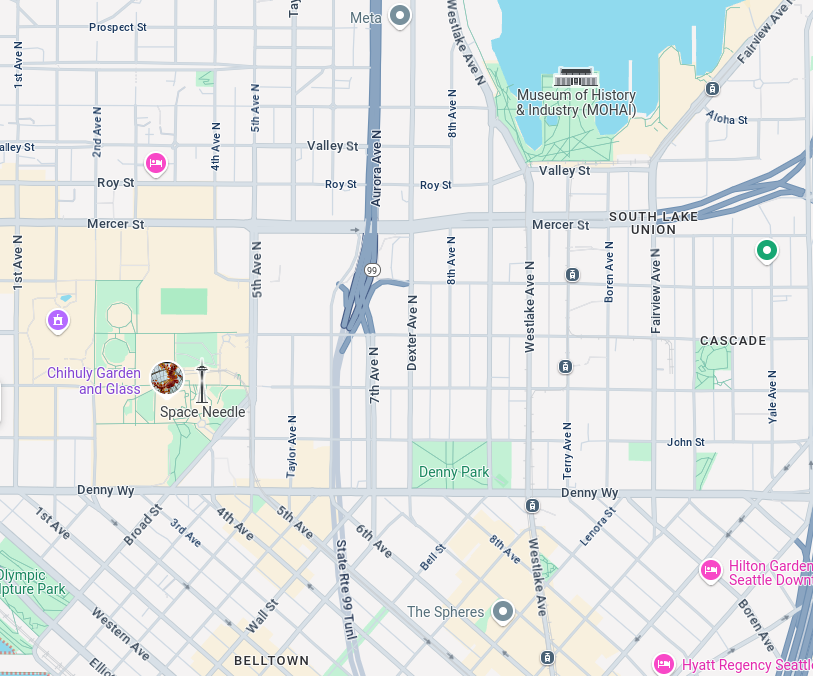
Jun 17th, 2025 Tuesday Cloudy
Global Position System (GPS), together with many commonly used related navigation tools, may be, arguably, the most helpful technological invention in the modern society, particularly for travelers.
Yet I have a love-hate relationship with it.
On one hand, I like looking up locations, landmarks, and tourist sites in unfamiliar places ahead of time. Being able to find a name that I have only seen in textbooks (e.g. Statue of Liberty) on a map and zoom in to “stand” on that street corner, imagining marveling at it in my mind, is one of my little joys in planning.
On the other hand, I do not want to have a GPS with me when I actually walk to explore a city. I would prefer a printed map (if available) or a downloaded offline map, a reference I can check if needed but do not have to follow blindly like a puppy.
During my recent trip to Seattle, while my husband was busy with his conference, I ventured out to the downtown area by myself. After doing some homework, I was fairly confident in my inner compass to guide me through the streets and avenues.
Like many cities, the majority of Seattle blocks are in grids, so it works like a coordinate system. The street names are also ordered (with some exceptions), thus I know that if I stand on the 3rd avenue, wanting to get to the 5th avenue, I just need to stroll away from the Puget Sound (uphill), and 5th avenue is in two blocks. This certainty makes me feel like a local 😉
Of course, you could say that using a smart phone can achieve the same thing, with less “burden” on your brain. I would agree – assuming that your smart phone has reliable signal and updated direction detection. Mine has neither, yet I do not regret it. In fact, I am secretly glad that I have an excuse NOT to be “connected” when I roam around.
Why is that? This seems to puzzle my friend that I met up with in Queen Anne.
“Why don’t you just get a smart phone?” he asked, scratching his head.
Many other reasons aside, I would not want to replace my orientation ability with an app. Not because I do not trust it – I am aware how advanced these functions have become – but because I realize that, visiting a city by purely obeying instructions of an app and having to figure out my own whereabout and construct a mental representation of the city in my head are TWO very different experiences.
Interestingly, there were quite a few places where I did the former, since my husband has a GPS on his phone and I was with him. I admit that I could barely remember the spots we actually stopped by, let alone any of the road names, appearances of buildings, or the vibes of the neighborhoods. Our attention was so much on the screen that we neglected to really take in the physical environment we were in, with our own senses. We looked, but we did not see.
Cognitive psychologists have shown that the deeper you process the information when you first encounter it, the better memory you will have and the easier it is retrieve the information later. This applies to the usage of GPS as well. The less we encode the map in our own brain, the faster it is to forget.
Therefore, I choose to do it the hard way, and let each adventure be a memorable one.